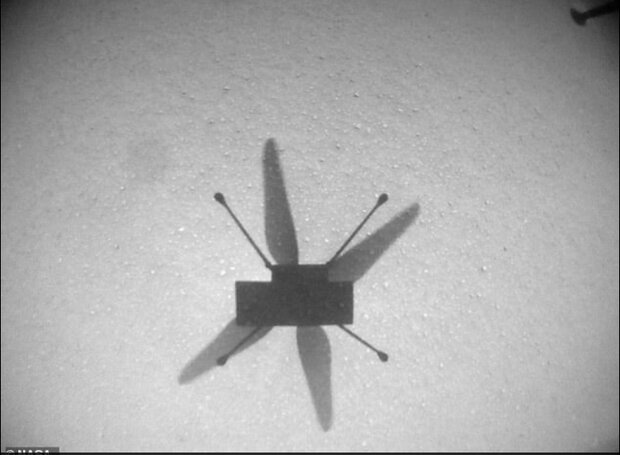NASA's Mars helicopter Ingenuity now has seven Red Planet flights under its belt, Space reported.
The 4-lb. (1.8 kilograms) chopper took to the Martian skies again on Tuesday (June 8), making its first sortie since battling through an in-flight anomaly on May 22. And there were no problems this time around.
"From a helicopter team member: 'No anomalies in flight 7, Ingenuity is healthy!' NASA's Jet Propulsion Laboratory (JPL), which manages Ingenuity's mission, wrote via Twitter on Tuesday evening.
Ingenuity lifted off around 12:34 local mean solar time on Tuesday, which corresponds to 11:54 a.m. EDT (1554 GMT). As planned, the chopper then traveled 348 feet (106 meters) south from its previous location on the floor of Mars' Jezero Crater, staying aloft for nearly 63 seconds, JPL officials wrote in another tweet. The solar-powered rotorcraft set down at a new airfield, the fourth one it has reached since landing on the Red Planet with NASA's Perseverance rover on Feb. 18.
Ingenuity deployed from Perseverance's belly on April 3. That milestone started the clock ticking on the helicopter's 30-day flight campaign, which was designed to show that powered, controlled flight is possible in the Red Planet's thin air.
Ingenuity performed five flights during that technology-demonstrating campaign, then embarked on an extended mission, which aims to showcase the scouting potential of Martian rotorcraft.
The first flight of that extended phase, the May 22 sortie, did not go entirely smoothly: Ingenuity suffered a glitch that briefly interrupted the flow of photos from its navigation camera to its onboard computer. But the chopper powered through the problem, managing to land safely near its intended destination. And there were no lasting issues if Tuesday's success is any guide.
Perseverance captured video and, at times, audio of Ingenuity's first five flights. But the car-size rover then relinquished its documentarian role to start focusing on its science mission, which is devoted to hunting for signs of ancient Mars life and collecting samples for future return to Earth.
ZZ/PR


























Your Comment